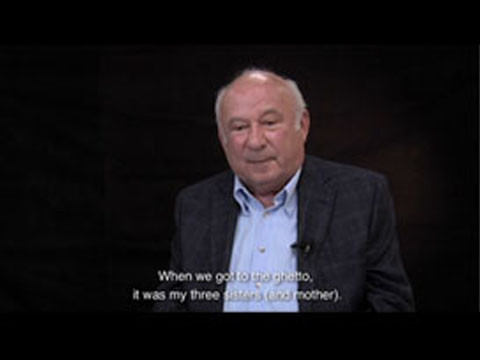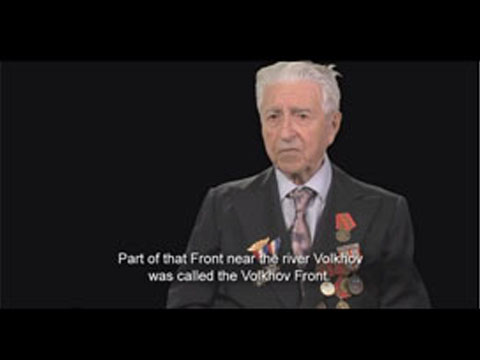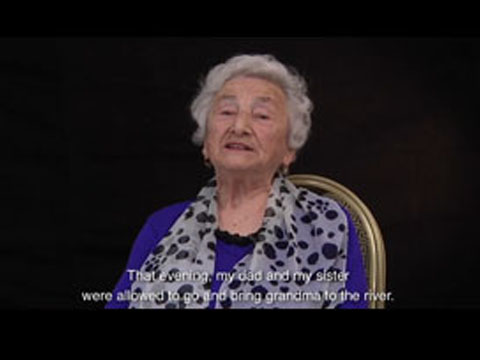
Abram Gamer
Born 1938 Minsk, Belarus
Interviewed In: Calgary, Alberta
Medals Awarded: Victory over Germany In The Great Patriotic War
“We would enter a village, while the Germans would leave on the other end of the village. That was how close to each other we would be.”
Battle of Stalingrad, Battle of Stalingrad, Battle of Kursk.
Before the war began David worked as an electrician, and was drafted into the army two months after graduating driver’s school. “3 months later we were transferred to Stalingrad area. We got off the train near Stalingrad, on the approaches to Stalingrad, 25 kilometres or so, maybe 30, away from Stalingrad. We were stationed in a village. I was a mortar man. It had been a month since I came there. A man approached me, “David, do you have your driver’s licence with you?” I go, “Yes, I do. Why?” “They are making up a list of drivers”. I went there. I was put on the list. They verified my info. I drove a ZIS 5. At that time, I was assigned to drive a one-and-a-half-ton truck. I lugged a lightweight artillery gun, a 45 mm one. That was an antipersonnel gun, that was all, nothing else.”
David recalls one incident while driving his truck. “We were in combat action all the time, with no breaks. I wasn’t exactly in combat action, my task was to supply our regiment with shells. I drove to pick up shells. Once, at night, in a freezing cold weather my radiator was covered on the outside. I lost it in the wind, I lost the cover, and the radiator froze. I was alone in an open steppe. I saw a village in the distance. I went there, to the village. I knew the phone number I needed to call. I didn’t know how to find officers. 3 hours later, I found a sub lieutenant. I told him everything; he made a call. An emergency repairs team arrived taking off and defreezing the radiator; and I was on my way to pick up shells.”
After the Battle of Stalingrad, headed to the Kursk Bulge, and drive to a station named Kachalino to pick up ammunition. “I drove over frozen water; water would run over the ice. While we drove, there was a wharf on the opposite side with a passage in between. When you are behind the wheel, you’ve got to look at the passage instead of the water, in order to get to the opposite side. Too many people drowned there too.”
David’s friends took care of him from being mistreated for being a Jew. “I had 4 friends, ethnic Russians. One of them was Kolya from Tambov, the second one was Petya Semagin from Chelyabinsk region; the third one was Fedya from Kharkov. They used to defend me with might and main. When someone called me “Kike”, Kolya who was a big guy, came up to him and gave him a heck of a smack so that he fell down. He was told that I was a Red Army soldier, not a Kike. I never saw him afterwards, the guy who had called me a Kike. I didn’t feel any difference, not at all!”
After he was demobilized from the army, David left Chernivtsi for Canada.

Born 1938 Minsk, Belarus
Interviewed In: Calgary, Alberta
Medals Awarded: Victory over Germany In The Great Patriotic War

Born: March 1 1920 Ukraine. Passed Away: 2012 Toronto, Ontario.
Interviewed In: Toronto, Ontario
Medals Awarded: Order of the Patriotic War (1st and 2nd Class), Medal for Defense of Leningrad and Victory over Germany In The Great Patriotic War

Born Zguritsa, Bessarabia (Moldova)
Interviewed In: Edmonton, Alberta
Medals Awarded: Victory over Germany In The Great Patriotic War